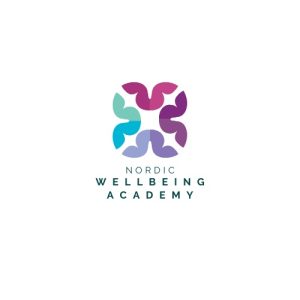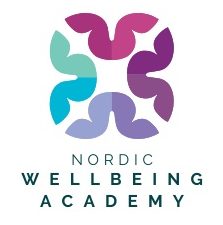Local action towards global impact
EUREGHA plays a vital role in advancing local implementation of health policies while fostering a broader European understanding of the strengths and challenges of a regional approach to health and wellbeing. By bringing together regional and local health authorities across Europe, EUREGHA facilitates the exchange of knowledge, best practices, and innovative solutions tailored to diverse contexts.
The network enables regions to share insights into how healthcare can be optimized at the local level, highlighting the unique needs and resources of smaller communities while ensuring alignment with broader European health goals. At the same time, EUREGHA’s work helps identify the limitations of a regional approach, such as disparities in resources, political frameworks, and healthcare access, offering a clearer picture of what works and where improvements are needed.
By bridging the gap between local realities and European policy, EUREGHA strengthens collaboration between regions and EU institutions, driving more effective and inclusive health strategies. Ultimately, the network’s efforts are crucial for fostering a health ecosystem that is both regionally tailored and responsive to the challenges of an interconnected Europe.
NWA was happy to participate in their annual conference in Brussels December 5, 2024 to add perspectives to the role of trust and collaboration as a local and regional superpower for the wellbeing of Europeans. Lars Münter participated in a panel with two regional representatives Emma Spear, Deputy Director, Health, Social Care & Early Years Group Director General’s Office, Welsh Government – Thomas Van Langendonck, Vitalink Analyst, Team eHealth, Department of Care, Flanders – at European level also policy officer Simone Boselli, Labour market, Education, Health & Social services of DG Reform.


Data Saves Lives – with a healthy dose of AI?
Since 2019, the Data Saves Lives initiative by the European Patients Forum has been vital for the important discussion about the digital transformation of healthcare and social services in Europe – and the key role of patient voices in all those evolutions. By ensuring data is accurate, secure, and accessible, the initiative helps address public health challenges, particularly in low-resource settings. In this context, ongoing debate about AI is crucial, as it addresses concerns about data privacy, algorithmic bias, and the ethical implications of AI-driven decision-making in healthcare.
So in November 26-27, EPF marked the 5th Anniversary of the Data Saves Lives initiative to further emphasize the critical role of data in improving healthcare outcomes, advocating for the responsible use of personal health information to guide medical decisions and enhance patient care. The event gathered a great mix of patient advocates, data science experts, regulators, ngo representatives, policy makers and more.
NWA participated with having Lars Münter both being in a debate panel on Data Savvy Patients: Empowerment through AI Literacy in Healthcare with Anca Toma, CEO of EPF and Ildiko Vajda of the Dutch Patient Organisation, Eric Sutherland of the OECD and – Stefan Phillips, OneVision Healthcare. And by facilitating a workshop on the importance of education in enhancing trust (in data, health, collaboration etc).


27/12/2024, Brussels – Data Saves Lives 2024 – European Patients’ Forum EPF
© Elio Germani 2024
Finally kick off! Forgotten Fish in Italy
It is always exciting to get to the first actual meeting in a new project. In the Forgotten Fish project this meant a visit to the Foggia province of Apulia, Italy.
Given the purpose of the project – to find new paths to enable gastronomical entrepreneurs to transform forgotten fish species into new culinary experiences and a contribution to a transformation towards sustainable food systems – this was a golden opportunity to also connect history with future.
In addition to a series of microtrainings, we got to experience the traditional (but challenged by climate change) fishing communities in Peschisi, artisinal wine making practices in San Severo, and bread making (from flour to fork) in Foggia it self.
Amazing landscape, people, tastes, and history. And a great meeting for our Greek, Italian, and Danish consortium. We look forward to meeting in Syros and Ærø – almost worlds apart, but connected by sea, cooking, and fish.


MentaStress – kick off in Limoges
With project partners in Spain, Italy, Greece, Cyprus, and Hungary, NWA was excited to join the kick off meeting in Limoges, France for the MentaStress project: Empowering First Responders for Better Mental Health in Crisis Situations.
The project is an innovative EU-wide initiative designed to both enhance first responders’ efficiency in emergencies and to support their mental well-being before and after.
The project will develop learning materials based on real life crisis events, and a multilingual platform to support the first responders and raise awareness. We will also explore and build augmented reality tools to create immersive stress-management training for first responders and carry out training in five EU countries to validate tools and content. This will help us build a comprehensive stress management guide.
MentaStress connects 9 partners across 7 EU countries, spans over 24 months and includes pilot programs, research, events, and seminars, creating an inclusive platform that targets broad engagement and sustainability.
We aim to shape policies in crisis management and mental health at both the national and EU levels. By fostering cross-sector cooperation, MentaStress will offer scalable and transferable training solutions, improving crisis response and mental health support for first responders and the community.
Future of healthy aging in Europe
Smart Health Age-Friendly Environments are the purpose of the SHAFE Foundation. NWA has the great honour of participating in the EU Week for Sustainable and Inclusive Communities: the future is SHAFE – taking place October 1-3, 2024.
NWA participated with a presentation on “Looking at the future: health and wellbeing European citizens” and talk about trust, accountability and KPIs, about cross-sector collaboration, and about horizon scanning as a tool for strategy and progress.
Read more at the event site here – or read about the SHAFE Foundation here and their amazing work explore and promote age-friendly progress in Europe.


Forgotten Fish – Erasmus+ project
Cool news – a new project to explore the use of Forgotten Fish
Forgotten fish are species underused by industrial fishing due to their small size or failure to reach a threshold for commercial trade, thus being underused in mass consumption and catering. Usually caught accidentally, they are discarded, contributing to waste and a lower respect for marine biodiversity (WWF, “The World’s Forgotten Fishes”, 2021).
Even if they are forgotten by industrial fishing, these could be an essential resource for artisanal fishing and environmental conservation since they can be caught in limited periods of the year. Due to the rapidity of their reproductive cycle, they are not at risk of extinction. However, the limited awareness and knowledge of forgotten fish lead to their underutilization and undervaluation in catering. Consequently, catering operators and VET centers are unfamiliar with these species and either do not use them or lack adequate synergies with artisanal fishing to make efficient and innovative use of them in catering.
The objectives of this project are:
A. Increase the knowledge and skills of catering operators in the use of forgotten fish.
B. Foster synergies between restaurateurs and artisanal fishermen in the use of forgotten fish.
C. Promote the use and promotion of forgotten fish in catering.
In this project we partner with Italian and Greek partners, in a consortium led by the amazing restaurant in Marstang Mad&Vin from Marstal, Ærø in Denmark – exploring practices from 2024-2026.
New Erasmus+ project on the way
Mental health – stress management for first responders through augmented reality in disasters
As a new experience, we’ll be part of a French-led consortium to explore better pathways towards mental health in a very challenging workplace – disaster, accidents, and crisis. With 8 other partners from France, Cyprus, Greece, Hungary, Italy, and Spain, we’ll be able from 2024-2026 to not just explore and develop better practices, but also integrate new technology for relief, awareness, management, and possibly rehabilitation in the MentaStress project.
Our project will look nothing like the image of minions – but like them, we humans are simply trying to do our best in challenging circumstances. We’ll be back with more asap.
Trust and Transformation
Representing the Nordic Health 2030 Movement and the Danish Committee for Health Education, Lars Münter participated in the High-Level WHO/Europe Conference for the Tallinn Charter 15th Anniversary Health Systems Conference: Trust and transformation – resilient and sustainable health systems for the future.
As part of the debate panel for Public Health Leadership, Lars Münter highlighted the powerful role that health leaders have as changemakers for healthy transformation beyond the health care system.
Read more about the conference.

Erasmus – sharing experiences
In 2023 we began considering how different uses of the Erasmus+ framework might be a method to share Danish experiences across borders and facilitating knowledge sharing between sectors and silos.
The Erasmus+ programme enables thousands of projects for professional knowledge sharing, but also enable interpersonal upskilling. Read more about the almost endless possibilities, results, and tools here.
We will be trying to explore new ideas, given our previous experience from projects like:
Dem@Mentoring (supporting informal carers for people with dementia)
ECARIS (supporting informal carers for kidney patients)
RECADE (building a guide for rehabilitiation)
Art4Me (exploring uses of art and creativity for mental health)
INFOCARE (exploring digital support for people with dementia)
Well@SME (building a digital platform to support mental health at SME workplaces)
eHealth4Cancer (exploring digital tools for cancer support)

Environment and health – a transformation overdue
In 2023 EuroHealthNet organised a debate during the WHO 7th Ministerial Conference on Environment and Health in Budapest. The conference connected ministries and organisations across Europe – indeed globally – to discuss the important interaction of environmental changes on health and health systems; but vice versa also the important impact and potential the health systems have for environment and the policies that connect the two areas.
Lars Münter represented Danish and Nordic ideas from his work in the Danish Committee for Health Education, the Danish Council for Better Hygiene, the Self-Care in Europe Initiative, and the Nordic Health 2030 Movement.
Read more about the conference here.











